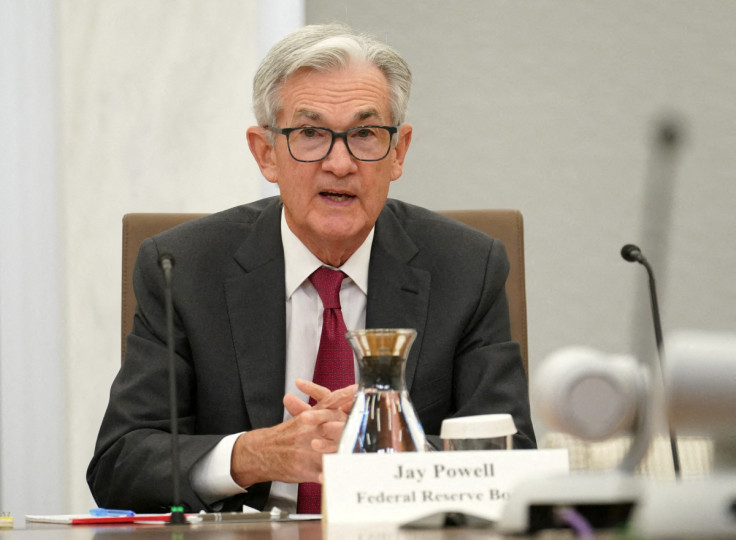Powell: Fed Needs Independence To Fight Inflation, Should Avoid Climate Policy

The Federal Reserve's independence from political influence is central to its ability to battle inflation, but requires it stay out of issues like climate change that are beyond its congressionally-established mandate, Fed Chair Jerome Powell said on Tuesday.
"Restoring price stability when inflation is high can require measures that are not popular in the short term as we raise interest rates to slow the economy. The absence of direct political control over our decisions allows us to take these necessary measures without considering short-term political factors," Powell said in prepared remarks to a forum on central bank independence sponsored by the Swedish central bank.
But "we should 'stick to our knitting' and not wander off to pursue perceived social benefits that are not tightly linked to our statutory goals and authorities," Powell said. "Taking on new goals, however worthy, without a clear statutory mandate would undermine the case for our independence."
The need for the U.S. central bank to manage inflation through interest rates and other policy is "well understood and broadly accepted," Powell said, and embodied in a federal law that charges the Fed with maintaining maximum employment and stable prices.
Though Powell said the Fed's bank regulatory powers give it a role to ensure financial institutions understand the potential risks they face from climate change, "without explicit congressional legislation, it would be inappropriate for us to use our monetary policy or supervisory tools to promote a greener economy or to achieve other climate-based goals. We are not, and will not be, a 'climate policymaker.'"
"Decisions about policies to directly address climate change should be made by the elected branches of government and thus reflect the public's will as expressed through elections," he told the forum in Stockholm, restating principles he has laid out before when questioned by the public or elected officials about the central bank's approach to climate change.
Powell's position on the issue stands in contrast to major central banks in Europe that have integrated green economy efforts into their policymaking.
But it also recognizes the political realities in the United States where opinion among elected officials is more divided. Powell and the Fed broadly have faced sharp criticism from Republicans, who now control the U.S. House of Representatives, even for efforts to include climate-related considerations into its oversight of the financial system.
© Copyright Thomson Reuters 2024. All rights reserved.



















